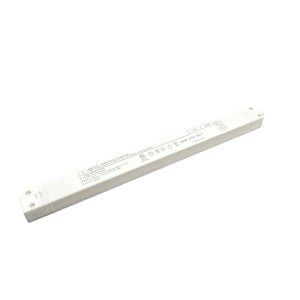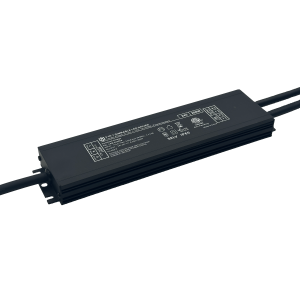Precise Control of Every Beam—Exploring the Cutting-Edge Tech Behind TRIAC Dimming Power Supplies
The evolution of lighting control has reached unprecedented levels of sophistication with TRIAC dimming power supplies at its core. Unlike traditional on/off switches or basic phase-cut dimmers, these intelligent systems leverage triac semiconductor technology to modulate AC waveforms with microsecond accuracy—transforming how we interact with artificial illumination. This breakthrough enables granular adjustment of not just brightness levels but also color temperature stability across LED arrays, eliminating flicker even at low intensities.
At the heart lies pulse-width modulation (PWM) synchronization paired with zero-crossing detection algorithms. When an electrical current crosses zero volts during each AC cycle, the triac triggers precisely timed conduction windows. By varying this duty cycle dynamically—often thousands of times per second—engineers achieve seamless dimming curves that maintain consistent CRI (Color Rendition Index) values critical for museums and medical facilities. Modern units integrate microcontrollers running adaptive compensation protocols that counteract voltage fluctuations and component aging effects automatically.
Advanced thermal management further elevates performance reliability. Multilayer ceramic substrates dissipate heat uniformly while shielded inductors suppress electromagnetic interference (EMI). Field tests show such designs reduce audible noise by 40% compared to legacy solutions, making them ideal for theaters and broadcast studios where acoustic purity matters as much as visual quality. The compact form factor also supports retrofitting into existing fixtures without compromising safety certifications like UL8750 or IEC61347 standards.

Real-world applications demonstrate transformative impact: architectural projects use cascaded networks to create dynamic façade effects; horticultural farms program spectral tuning for optimized plant growth cycles; industrial sites implement emergency backup modes through dual-input architectures. Cloud connectivity now allows facility managers to monitor power consumption patterns globally via IoT gateways, turning lighting infrastructure into actionable data streams.
Future iterations promise even greater precision through machine learning integration. Self-calibrating systems could predict maintenance needs by analyzing subtle changes in switching characteristics, while GaN FET replacements might push frequency response beyond human perceptual limits. As smart cities expand, the role of intelligent dimming will only grow—bridging aesthetics, sustainability, and user experience through continuous innovation in power electronics.
 In heritage architecture prote
In heritage architecture prote
 When small-batch customization
When small-batch customization
 Have the electromagnetic emiss
Have the electromagnetic emiss
 When Triac dimmable power supp
When Triac dimmable power supp
